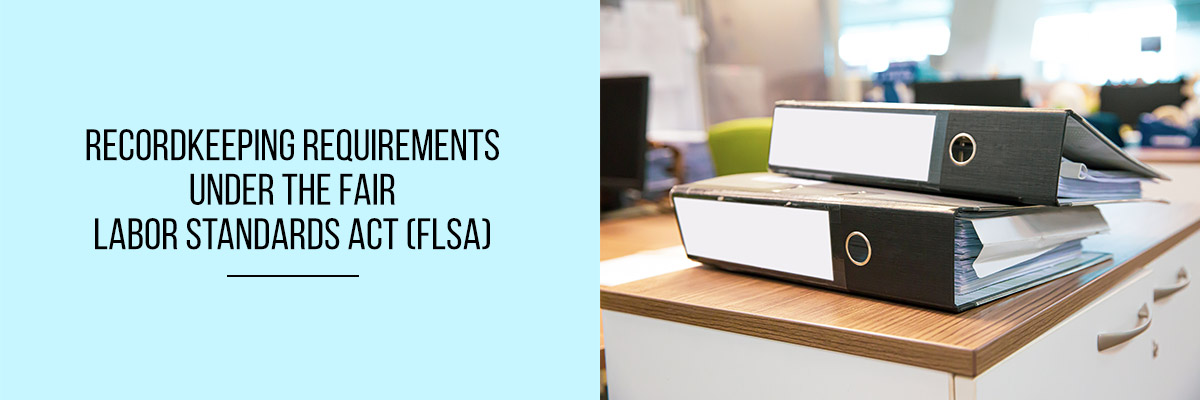The Fair Labor Standards Act (FLSA) is a federal law designed to protect employees from exploitation and ensure fair compensation, safe and healthy working conditions. The FLSA applies to over two million workers in industries such as agriculture, domestic work, and manufacturing. The FLSA requires employers to pay minimum wage, pay overtime to non-exempt employees who work over forty (40) hours in a week, and record and maintain accurate timesheets and records for all covered employees.
Section 14 of the FLSA requires employers to provide a minimum wage, overtime pay, recordkeeping, and youth employment standards for employment subject to its provisions.
Records Required For the Fair Labor Standards Act (FLSA)
The Fair Labor Standards Act (FLSA) sets the minimum requirements for wages in most circumstances. Whether you are an employer or an employee, you are legally obligated to keep records in order to make sure you are paying the minimum wage amounts that are required by the FLSA. The minimum wage for most employees in the United States is $7.25 per hour. While this level was set by Congress in 1938, it is still enforced today.
The FLSA requires all covered employers to keep certain records for each non-exempt employee. These records include: A statement of the hours worked each day and week, and of the wages paid. The name and address of the person to whom the wages are paid. The amount of each payment of wages. If the employee is paid on a piece-rate basis, the amount of the wages paid for the piece or units thereof that have been worked. If the employee is paid commission, the amount of the wages paid for the commissions. If the wages are paid by check, the number of such checks. The date each payment is made, and the closing and posting dates of the books and records used to keep the wage.
How Long Should Records Be Retained?
The Fair Labor Standards Act requires that each employer maintain payroll records for at least three years after employment ends. This includes employment records, collective bargaining agreements, purchase orders, payroll records, and so forth. These records are required to be kept in a safe place and are not to be thrown away.
Final Words
It is important to understand that the FLSA allows for exemptions, so if your company is exempt, the FLSA does not apply to you, but you still have to record all your employees’ wages and pay for benefits in accordance with the Fair Labor Standards Act.
To know more about the Recordkeeping Requirements under FLSA, attend the Compliance Prime webinar.


